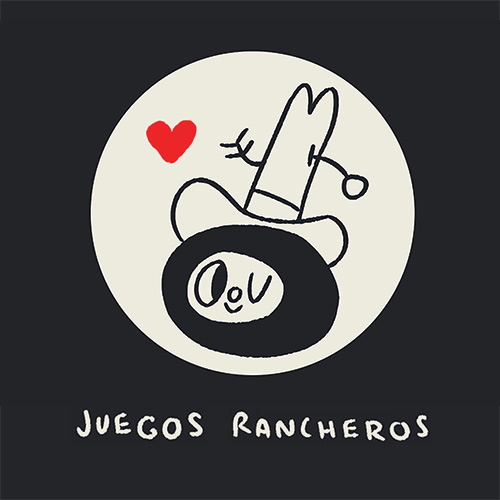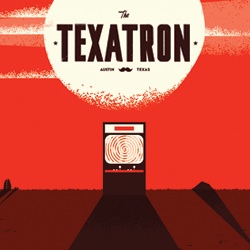ONE MORE GO: WEREWOLF, OR WHY PLAYING GAMES CAN GIVE YOU HAIRY PALMS
Last night I killed eleven people. Not virtual people, not avatars, not NPCs. People. Some I knew, some I didn’t. Some who would have killed me first if they could, some who died trying to protect me. I kill because I was trained to, by a Russian master psychologist by the name of Dimma Davidoff. There are many like me, who live among you peacefully until we are called into action. We aren’t assassins but slaughterers, guided only by the twin impulses to kill and to survive. We call ourselves the Werewolves.
Actually, originally, we called ourselves the Mafia, but there’s probably some copyright infringement there and we had a rethink. Either way, Werewolf has been around for 20-odd years, enlivening frat parties and corporate retreats with a tang of bloodlust and betrayal.
How it works is simple. A roomful of people are distributed cards, in secret, which designate them either villagers or werewolves. At ‘night’ all the villagers close their eyes and the werewolves open theirs to identify a victim. During the ‘day’ the game moderator announces who has died and everyone – villagers and werewolves alike – must come to an agreement on who to lynch in the hope of eradicating the werewolf threat. There are thousands of rule variations, but that’s the heart of Werewolf: a game of deceit, misdirection and skepticism that I love more every time I play it.
A game, though, not a computer game. I shouldn’t even really be talking about it here. Except, of course, around the world thousands of people are using computers to play Mafia through email and forum software. And, coming home last night, I was hungering for a little DS app, shareable with 7 other players, which could take over mod duties and introduce all kinds of neat little twists to the voting. Would that be a videogame? How about if we call it Goombas not Werewolves and charge you $34.99 for it?
I spend a lot of time thinking about what videogames actually are; I find it embarrassing that I’ve focused my entire life around something I can’t adequately define. I have two main approaches, one theoretical, one practical. The theoretical one is usually undertaken in the company of friends and is fueled with one – perhaps two – glasses of wine. We spent a week hashing it out in Utrecht last year and came up with the notion that a videogame is an ‘asymmetric dynamic system calibrated to create disproportionate feedback loops.’ It was hard-won, that sentence, but is in hindsight obvious tosh.
The practical method I call Duck Hunt. It’s simply the process of taking things that clearly are or aren’t games and adding things or taking things away until they stop (or start) walking like a duck and quacking like a duck. So, Werewolf definitely isn’t a videogame. Werewolf played on a forum still doesn’t feel like a videogame to me, although I’m a bit at a loss to explain how it differs in principle from Counter-Strike (opponents use a computerised interface to deliver kill notices to each other over long distances, with the most skilled players most likely to win). Putting it on DS and adding a visual element makes me more comfortable about calling it a videogame, but I suspect I’m just deluding myself.
I’ve come late to this debate, of course. Flame wars have been raging for decades about raster vs. vector, video vs. computer, all without any real sense of closure. When I first starting thinking about it, some things seemed to be simple: there needs to be a screen, I need to be able to win. But then games came along that you couldn’t win but that incontrovertibly felt like videogames.
There’s a lot you can say about Noby Noby Boy, but no-one’s going to argue it doesn’t feel at home on a game console. And more and more, designers are using non-screen elements – audio delivered over mobile phone, real world locations, printed text – to extend or even replace the traditional videogame play experience. As the years have gone by, the answer has seemed less and less clear.
But if I’m getting further and further away from a good abstract definition, I’m getting closer to understanding a personal one. I like games, ultimately, because I like magic. I like sitting down in front of the same box every morning and not knowing which extraordinary world it will take me to today. I suspect every child who grew up with Mr. Benn is subject to the same persistent thrill. And I love disproportionate feedback. I love doing something small and having something huge happen, whether its detonating a firework in Fantavision or the heartbreaking pang of killing a Colossus. And I love AI. I love the facsimile of life, the little spark that comes into something inert and gives it the power to move, to surprise, to engage.
Alone, however, these things aren’t signifiers of what makes a videogame a videogame. There is a vast Venn diagram to be drawn tabulating all of this: games with screens, games without screens, electronic games, electric games, mechanical games. Games that play themselves, games with no AI, games that are sports, sports that are games, games that are play, play that is art. But the more I think about it, the more I realise we need that diagram not to answer the fundamentally facetious question ‘What is a videogame?’, but to illustrate just how rich the ecology of games actually is. To help us remember that videogames didn’t start with Baer or Higinbotham, Douglas or Russell, but go back millennia to villagers gathered round fires that died to blood-red embers while they played at being werewolves.
(Pixel werewolf cards by iLKke, group shot by Matlock [Margaret in red at left], illustrated werewolf cards via Ender Wiggins.)
[Margaret Robertson is the former editor of Edge magazine and now videogame consultant. One More Go is her regular Offworld column in which she explores the attractions of the games she just can’t stop going back to.]
Previously:
One More Go: World of Warcraft, home is where the hearth is – Offworld
One More Go: Rhythm Tengoku, or Why plucking the hairy onion makes …
One More Go: Disgaea's quest for numerical orgasm – Offworld
One More Go: Donkey Kong Jungle Beat – Offworld
One More Go: Ikaruga, The Big Enemy Is Approaching – Offworld
One More Go: Ranarama – Offworld
One More Go: New York Times Crosswords – Offworld
See more posts about: Offworld Originals, One More Go






